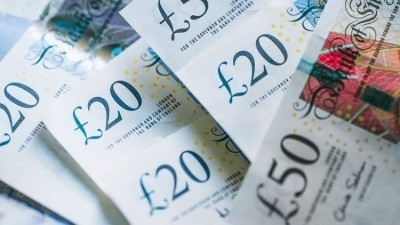The Lowdown: the Energy Bill Relief Scheme

So is this a cap?
The Government is avoiding the term, but essentially, yes (although it should be highlighted that energy suppliers remain free to impose additional mark-ups such as network charges and operating costs, which are uncapped). The Department for Business, Energy & Industrial Strategy has set a ‘supported wholesale price’ for all non-domestic customers at an expected rate of £211 per MWh for electricity and £75 per MWh for gas.
Those numbers mean nothing to me - what does that mean in percentage terms?
According to Bloomberg, most non-domestic users can expect a cut of around 50% for gas and 25% for electricity. While that’s certainly better than a kick in the teeth, the level of support must be looked at in the context of an unprecedented rise in utilities costs. One of Tom Kerridge’s venues was faced with a £420,000 electricity bill that was up 600% on the year before and pub operator Fullers was looking at its annual overall spend on energy going up by a dizzying £10m to £18m.
How has it been greeted by the industry?
With great relief. During the Conservative leadership race Liz Truss seemed unwilling to help but appears to have had a change of heart since becoming Prime Minister. Make no mistake - this is a major intervention with the total cost to the taxpayer for both the Energy Bill Relief Scheme and its domestic counterpart the Energy Bills Support Scheme set to be higher than the Government's £70bn Coronavirus Job Retention Scheme, more commonly known as furlough. Operators and trade bodies have praised the Truss, Chancellor Kwasi Kwarteng and Department for Business, Energy & Industrial Strategy minister Jacob Rees-Mogg for stepping in and at least partly protecting the industry from the worst of the rises and - perhaps even more importantly - providing some much needed clarity. But - as is nearly always the case - most have called for even more support for a sector that according to many is on its knees.
What do businesses need to do to get access to these prices?
Nothing at all. As with the Energy Price Guarantee for households, customers do not need to take action or apply to the scheme to get the support. The p/kWh discount will automatically be applied to bills.
Nice. How long will the discount last for?
Six months. The Energy Bill Relief Scheme will apply to energy usage from 1 October 2022 to 31 March 2023, meaning the savings will first be seen on October bills, which are typically received in November. The Government will publish a review into the scheme in three months to inform decisions on future support after March 2023 but has said that additional support for ‘vulnerable’ industries such as hospitality will be introduced after the initial six month period.
Does it matter what tariff a business is on?
Yes. Those on default, deemed or variable tariffs will receive a per-unit discount on energy costs, up to a maximum of the difference between the Supported Price and the average expected wholesale price over the period of the scheme. The amount of this Maximum Discount is likely to be around £405/MWh for electricity and £115/MWh for gas, subject to wholesale market developments. Non-domestic customers on default or variable tariffs will therefore pay reduced bills, but these will still change over time and may still be subject to price increases. As such, the Government is working with suppliers to ensure all their customers in England, Scotland and Wales are given the opportunity to switch to a fixed contract or tariff for the duration of the scheme if they wish.
What about people that have hedged their bets by fixing for extended periods?
Businesses on existing fixed price contracts will be eligible for support as long as the contract was agreed on or after 1 April this year. Provided, of course, that the wholesale element of the price the customer is paying is above the Government Supported Price, their per unit energy costs will automatically be reduced by the relevant p/kWh for the duration of the Scheme. Customers entering new fixed price contracts after 1 October will receive support on the same basis.
What are the predictions for the energy market more generally?
While that is not an easy thing to foresee, the Government is working on the assumption that prices will fall. Most experts believe the energy market is now stabilising following a sharp jump in demand following the pandemic and reduced global supply due to Russia’s war against Ukraine, which together combined to form a perfect storm. Talking of storms, the severity of the winter months will impact prices, too, so fingers crossed for a mild one.










